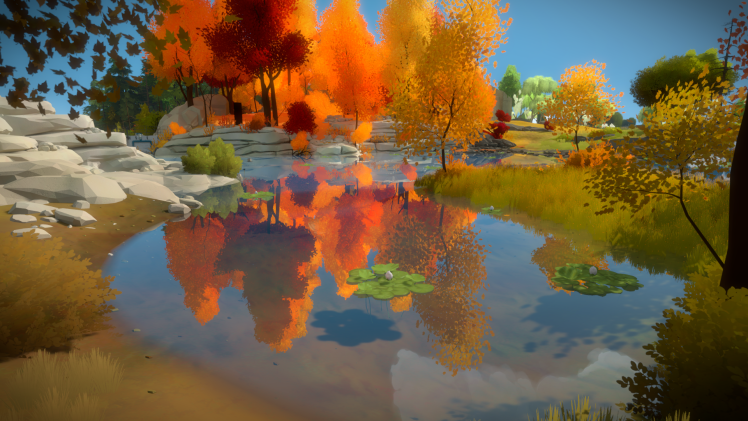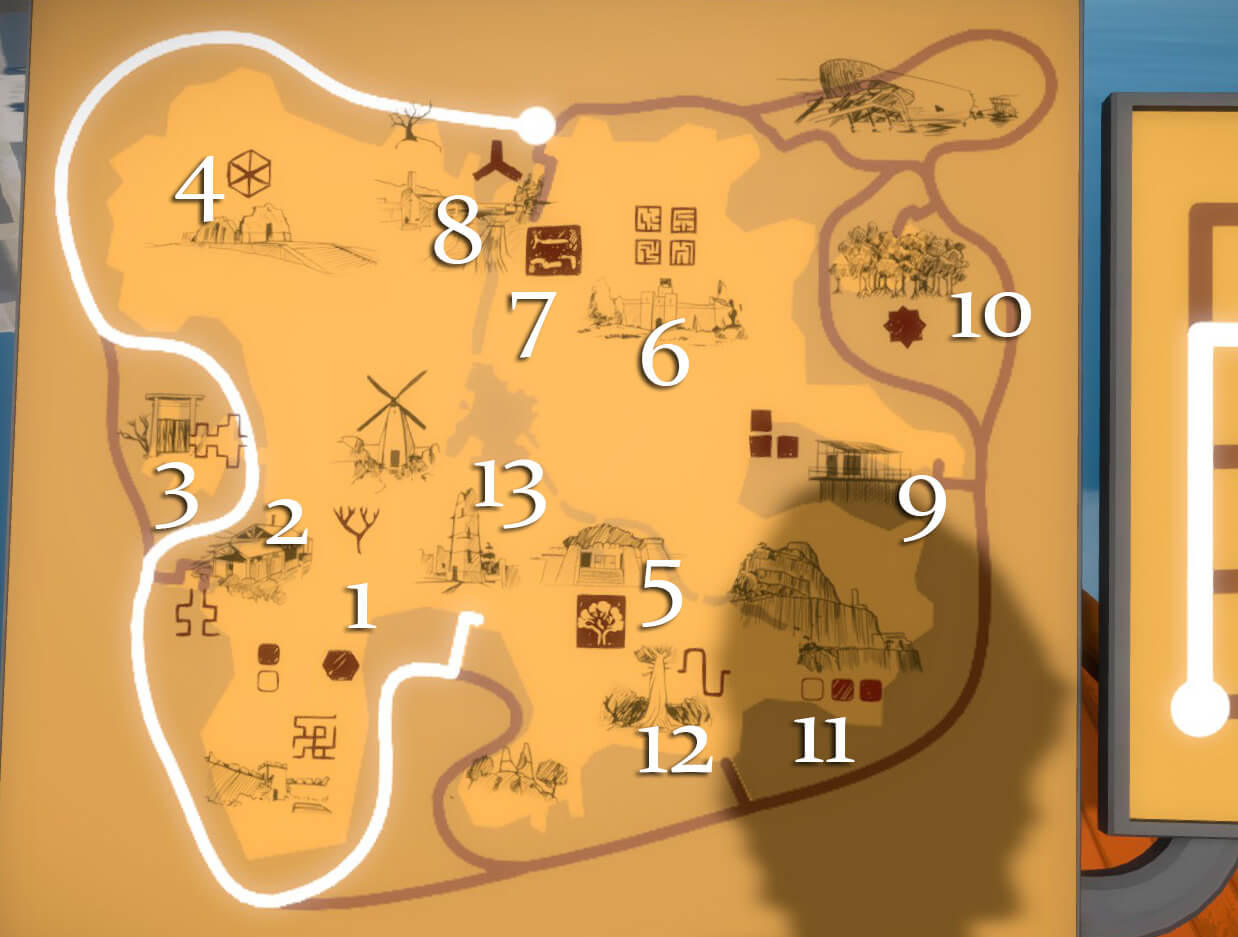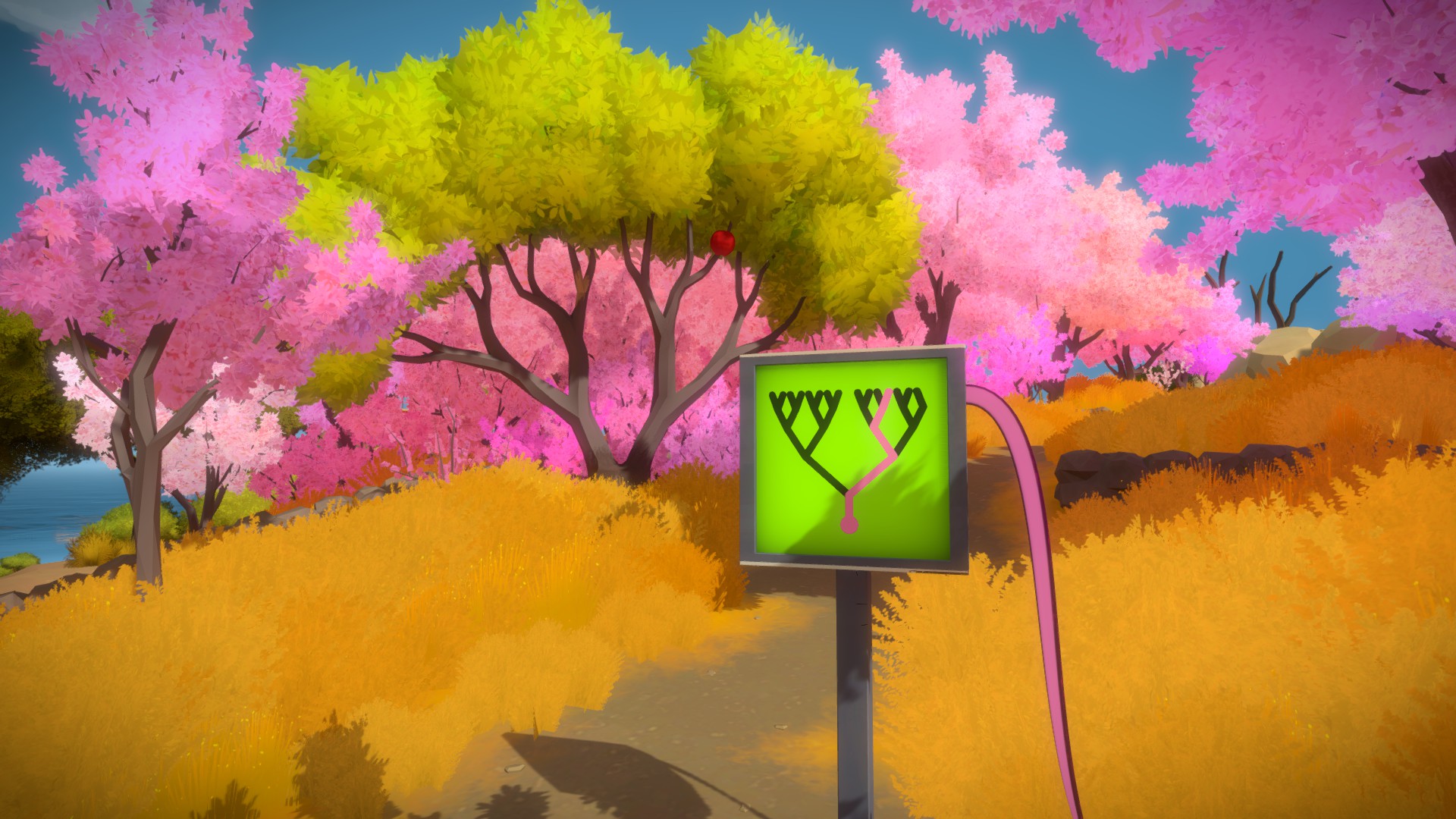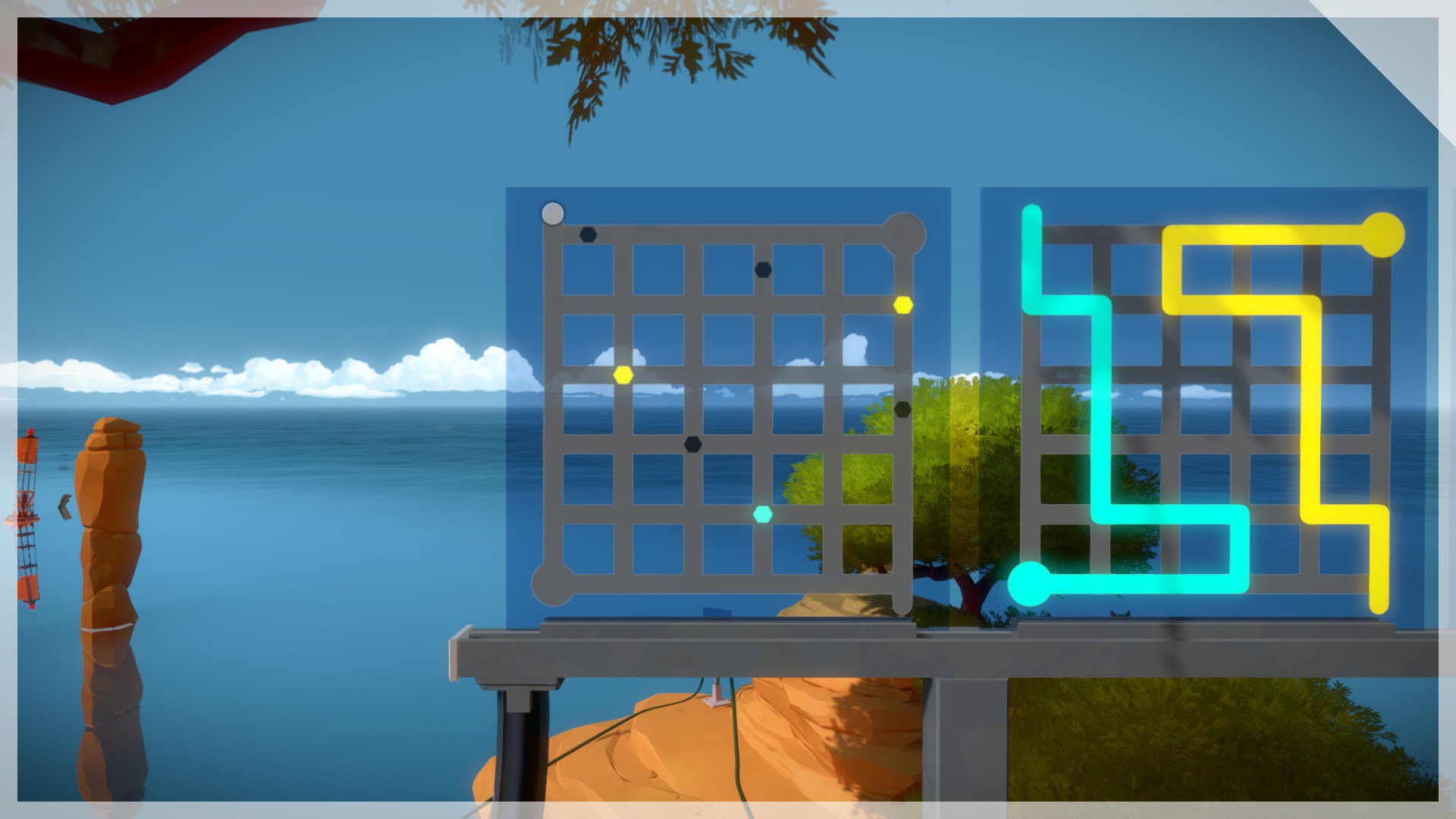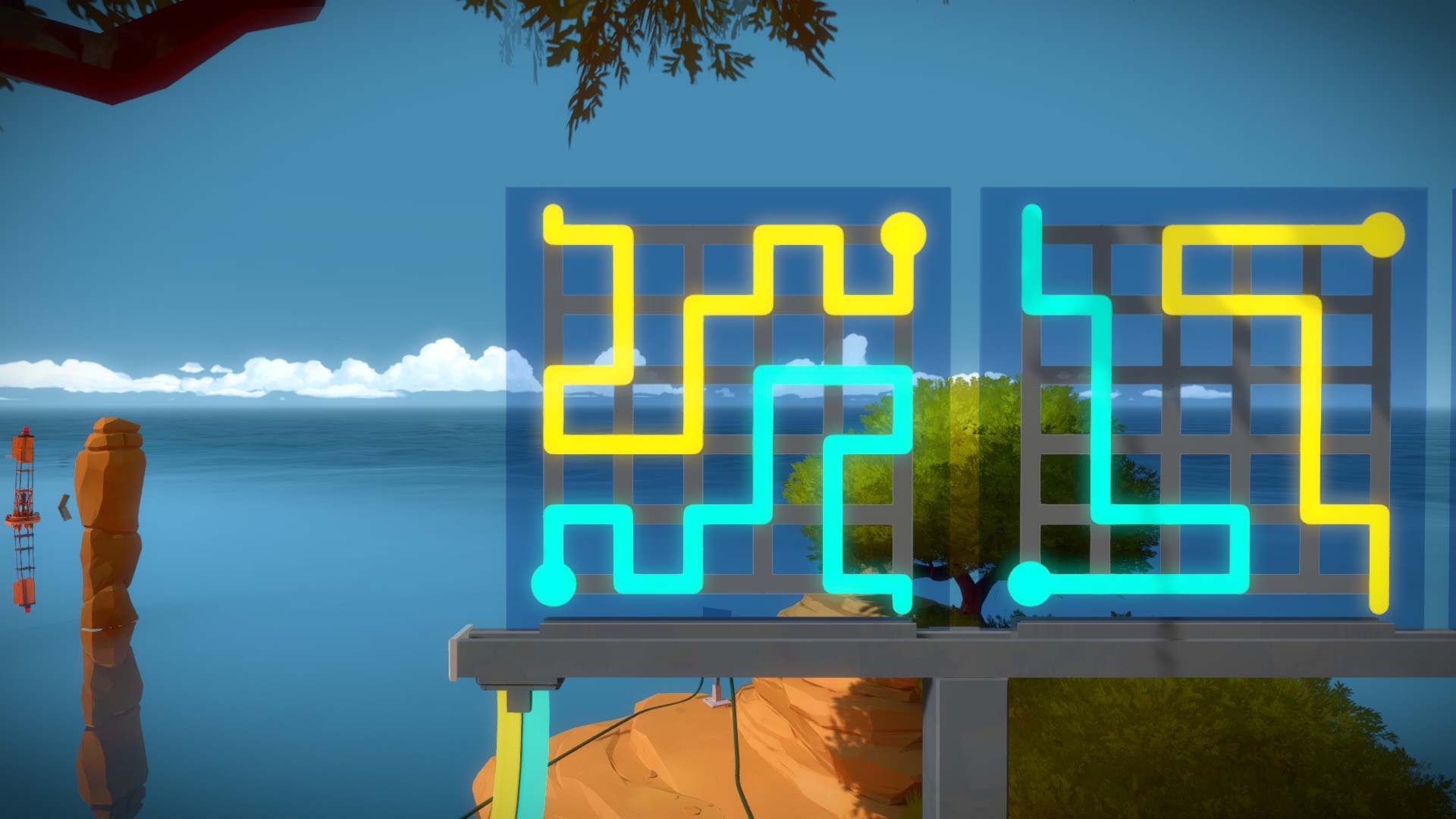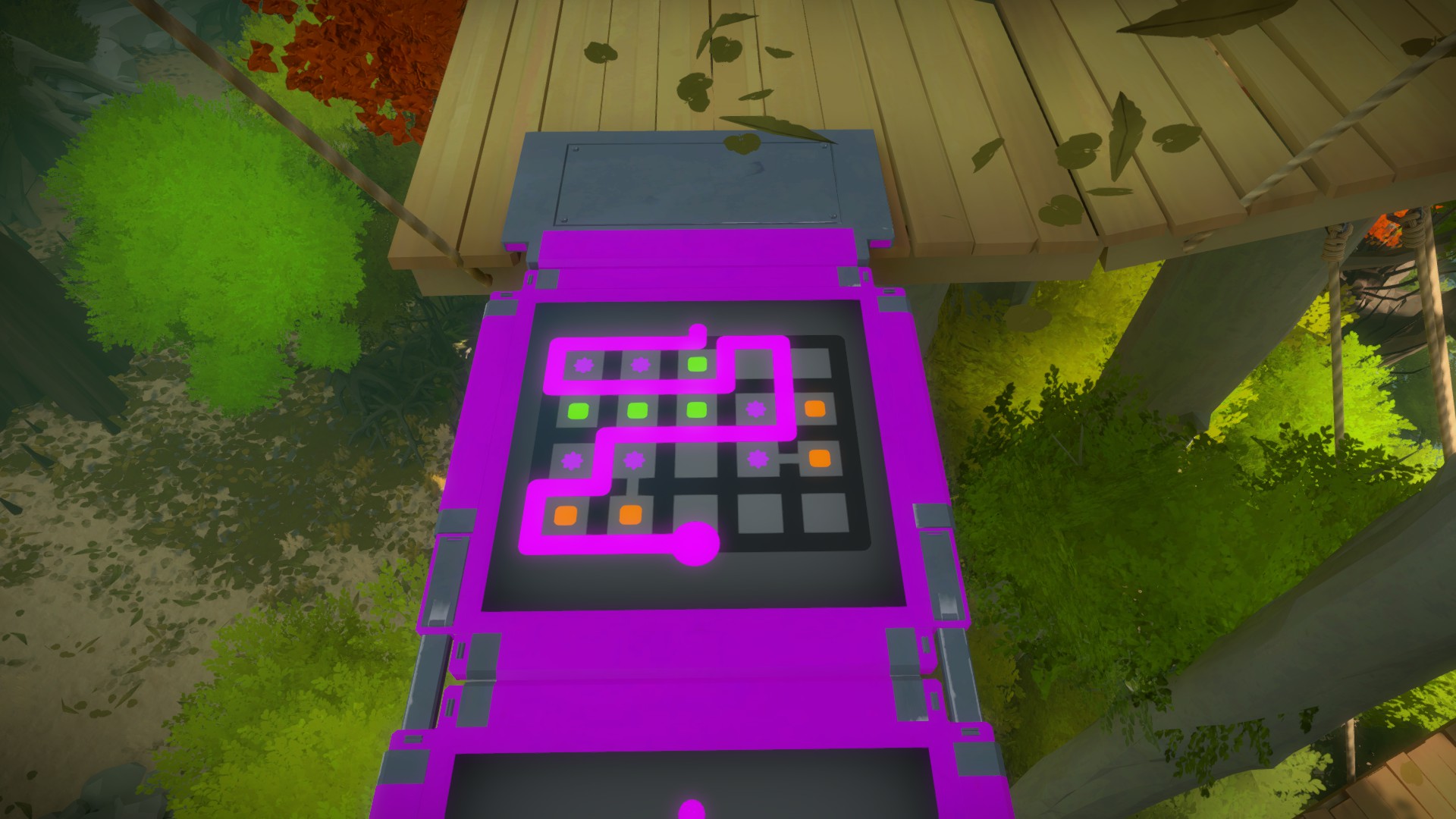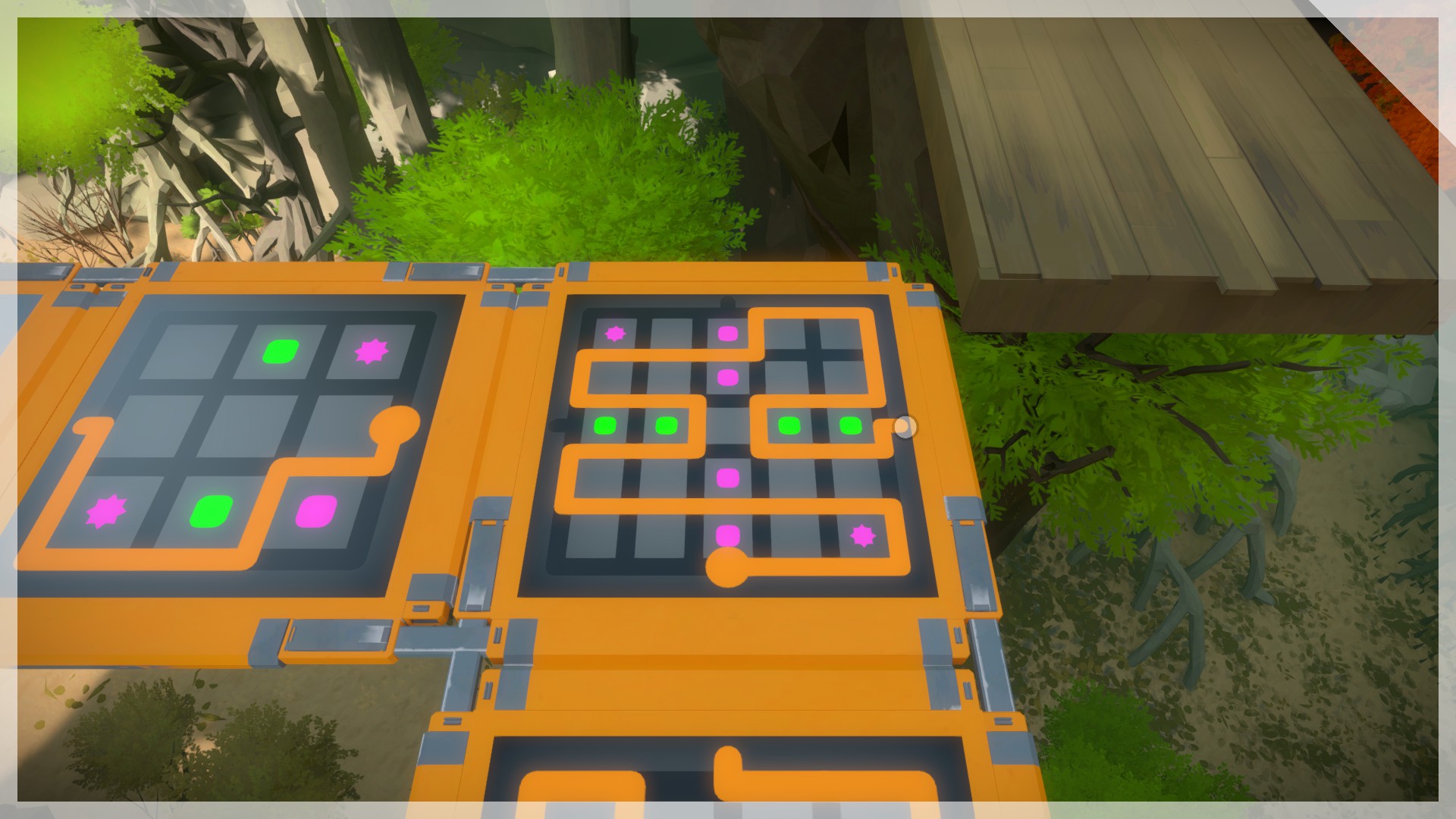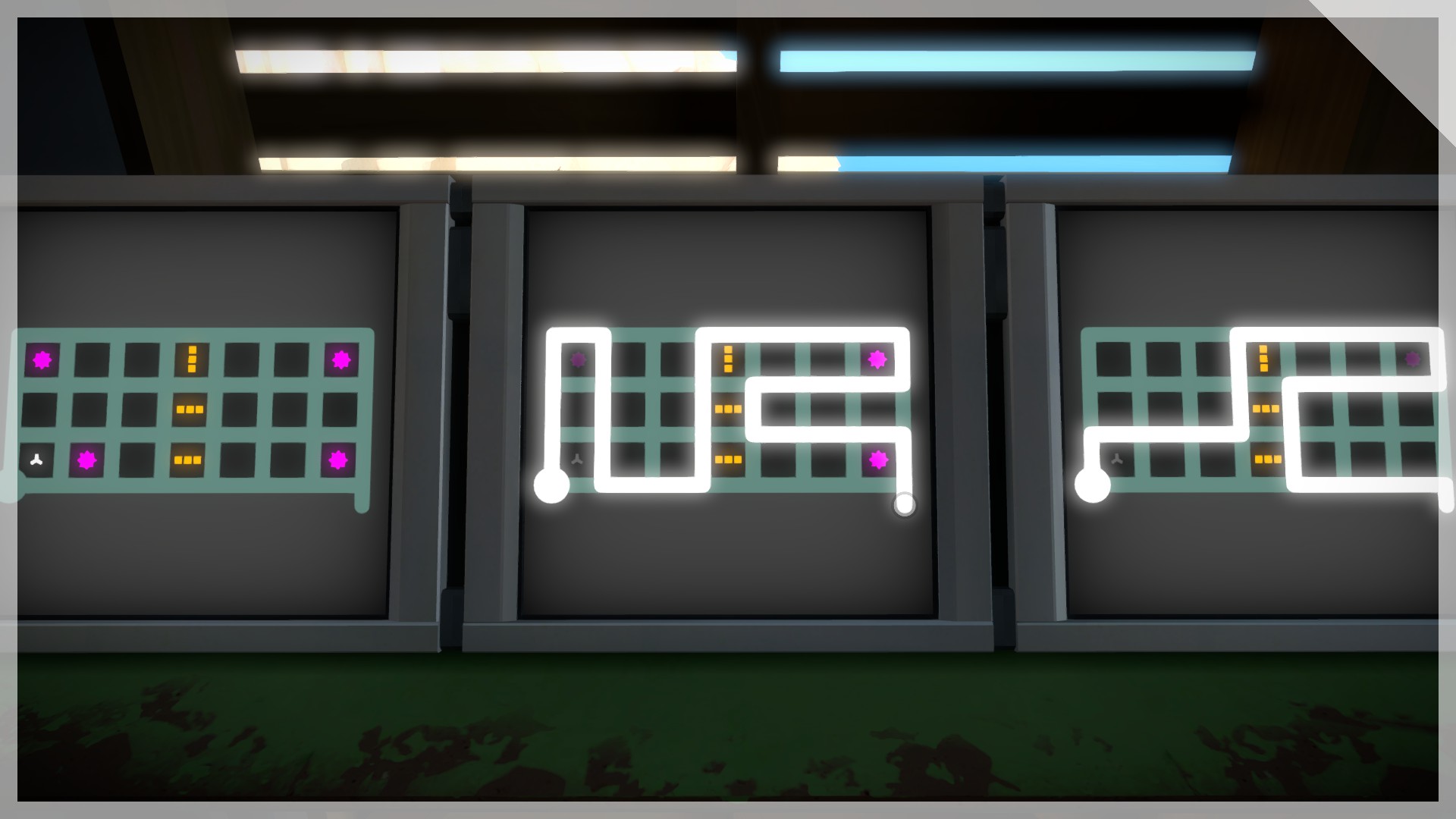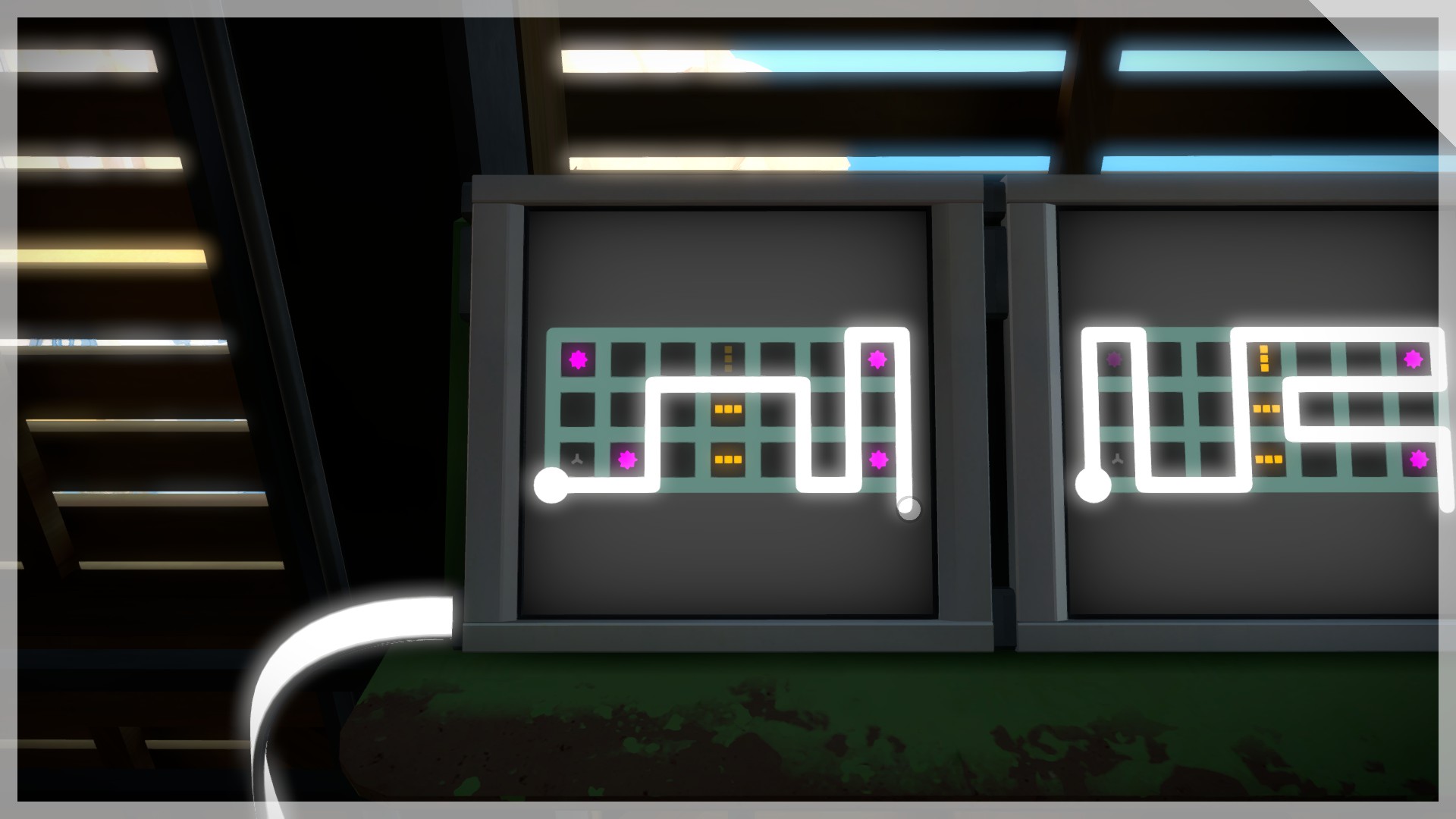We’re still working on this guide. If you know something we’re missing, feel free to email us.
The Witness is now out on Xbox One, and I’m here if you need some help.
Before we start, I want to give you one last chance to turn back. The Witness is a wonderful game specifically because it trusts in your abilities. Also, if you’re stuck, you can always turn around and go find another puzzle before coming back to have another crack at one you find particularly difficult.
You might have more fun if you stick to our spoiler-free tips.
That said, I understand that time constraints and frustration tolerance is different for everyone. So if you do need help, I’m offering it.
Area walkthroughs
- Pink tree meadow/Orchard
- Water house/Symmetry
- Red gate/Symmetry
- Sand temple/Desert
- Tree temple/Monastery
- Hedge tower/Keep
- Orange tree grove/Orchard
- Quarry/Logging
- Swamp/Marsh
- Tree village/Treehouse
- Greenhouse Lab
- Tropical Forest/Sound Garden
- Town Square/Hub
- Mountain
- Finding the challenge room
- Challenge Room/Music box
- Special doors
- More to come …
The rules of The Witness
Developer Jonathan Blow and his studio, Thekla, have littered its digital island with hundreds of line-drawing maze puzzles, but they come in two primary flavors: observational and logic.
For observational puzzles, you must look around the environment for clues. Logic puzzles, however, are self-contained and force you to understand what certain symbols mean. You will, eventually, learn the logic of every star and colored block as you play — but some puzzles are more complex than others. To start off this guide, I’m going to talk about these rules to help put some puzzle logic into works.
Observational puzzles
Some puzzles are going to require you to look around. Take this early tree puzzle:
If you just look at the sign, you will end up guessing for the solution here. But pay attention to the green tree. It has an apple on one of its branches, and that is the answer to the maze.
These observational puzzles get much more difficult, but the discovery method is always the same. Look around the world. The answer is somewhere nearby.
Dots
Colored dots are an easy idea to understand. You need to cover them with your line. If they are yellow, you need to cover them with a yellow line. The color should always match the line that is covering it.
Look at this puzzle to help illustrate this idea:
I’ve already solved the puzzle on the right, but it can help us figure out the one on the right. In this maze, you control both the teal and yellow lines simultaneously (they are a mirrored and flipped version of one another). For the left puzzle, you need to guide the lines so that the yellow line and teal line are covering their respective dots while covering the block dots with either color.
The end result looks like this:
Black and white boxes
The hell is a
“dividing line”?
A dividing line is any line you draw in The Witness that segments one part of the maze from the rest. To complete a dividing line, you will usually need to go all the way to the border — but the border does not need to be closed by your line.
Black and white dots are simple to understand, but as with many simple concepts in The Witness, they can get insanely complicated.
Black dots and white dots can never end up on the same side of a dividing line. To help you understand what that means, check out the description of a dividing line in the breakout box.
To help you understand, let’s explain what is happening in the puzzle above, which is one of the first complicated black-and-white mazes you come across. You can see that every white dot is inside where my teal line is drawn, and the black dots end up outside of it. Also note that just below where the maze starts (the fat teal dot) is an opening on the border to the right. That doesn’t matter. Borders are naturally closed. This also means that black dots or white dots don’t have to be in the same section. It’s only important that they are not sharing a space with any dots of the opposite color.
Colored boxes and stars
And my head already hurts.
You’ll run into a lot more than just black and white boxes. Colored boxes and stars (which look kinda like asterisks and stars mashed together) behave similarly to black and white boxes with a few twists.
Let’s look at the puzzle above to help explain all this. The boxes are orange and green, and the stars are purple. For boxes, you’ll once again want to ensure that they are separated by color. But stars are completely different:
Stars must have two of any one color on one side of a dividing line.
So in the puzzle above, you can see that the orange and green boxes are never on the same side of a divider, and you have two purple stars split up into the three main sections of the puzzle.
But it gets trickier than that because star colors don’t affect one another. Check out this puzzle:
You can have orange and purple stars on the same side of a line. That isn’t a problem. Oh, but it gets even more confusing!
Stars demand that you have two of the same color on one side of the line, but only one has to be a star. I know that’s confusing, but you can see that you have one purple star and one purple box on the bottom right and top left.
Tetris pieces
In the puzzles above, you can see an arrangement of yellow blocks in some of the boxes. These are what I’m calling “Tetris pieces.” For these mazes, you need to create an outline that is exactly big enough to house these shapes.
Look at the puzzle on the far left. On the bottom, you can see an L-shaped Tetris piece sitting at a slight slant. This means you need to rope off four blocks shaped like an L that also contains that box.
Here’s an illustration where the puzzle with the solution is on the left and the reasoning is on the right:
Now, a few more things about these Tetris pieces. If they are slanted diagonally, it doesn’t matter what direction the spaces are in as long as they are shaped like the piece. But if the symbol is perfectly up and down or left and right, you have to keep it that way. So if you have a four block-long line that is laying perfectly horizontal, divide a vertical four-block section for it. That won’t work.
Elimination marks
Elimination marks work in conjunction with everything else. It removes one symbol that it is in the same section with.
In the puzzles above, you can see faded elimination marks and one faded purple star. But, remember, you have to have two stars in every section. The only exception to that rule is when you can delete it. And if you see an elimination mark in a puzzle, you have to incorporate it into your solution. Finally, this symbol will erase anything that is superfluous if it is sharing an area with more than one item.
Look at the unsolved puzzle on the left up above. You have four purple stars and three Tetris blocks. We can complete this maze by using the elimination mark to get rid of the vertical Tetris piece.
Check it out:
Mixing and matching
The Witness takes all of these basic concepts and combines them for some truly devious puzzles. That means observational puzzles stacked on top of logic puzzles. Keep that in mind when you get frustrated, and you should eventually get through everything that stands between you and completing the game.
